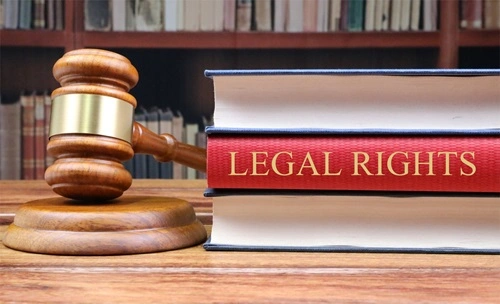Yes, every individual in India is entitled to several legal rights guaranteed by the Constitution, statutory laws, and judicial precedents. These rights aim to ensure justice, equality, and liberty for all citizens and even certain protections for non-citizens.
Legal Rights in India: A Detailed Overview

The legal rights in India are categorized under fundamental rights, statutory rights, and human rights. Here’s a comprehensive guide:
1. Fundamental Rights
Fundamental Rights are enshrined in Part III of the Constitution of India. They are justiciable, meaning they can be enforced in a court of law.
- Right to Equality (Articles 14-18):
- Equality before the law and equal protection of the laws.
- Prohibition of discrimination based on religion, race, caste, sex, or place of birth.
- Abolition of untouchability and titles.
- Right to Freedom (Articles 19-22):
- Freedom of speech and expression.
- Freedom to assemble peacefully, form associations, and move freely throughout the country.
- Freedom to reside in any part of India and to practice any profession or trade.
- Protection against arbitrary arrest and detention.
- Right Against Exploitation (Articles 23-24):
- Prohibition of human trafficking and forced labor.
- Prohibition of child labor in hazardous industries.
- Right to Freedom of Religion (Articles 25-28):
- Freedom to profess, practice, and propagate religion.
- Right to manage religious affairs.
- Cultural and Educational Rights (Articles 29-30):
- Protection of the rights of minorities to conserve their culture.
- Right of minorities to establish and administer educational institutions.
- Right to Constitutional Remedies (Article 32):
- Right to approach the Supreme Court or High Court for enforcement of fundamental rights through writs like habeas corpus, mandamus, prohibition, certiorari, and quo warranto.
2. Statutory Rights
Statutory rights are derived from laws enacted by Parliament or state legislatures.
- Right to Information (RTI Act, 2005):
- Every citizen has the right to access information from public authorities, promoting transparency and accountability.
- Right to Education (RTE Act, 2009):
- Free and compulsory education for children between 6 and 14 years.
- Right to Privacy (Recognized by Supreme Court):
- Every individual has the right to privacy, a fundamental right under Article 21.
- Rights of Women:
- Protection under the Domestic Violence Act, 2005.
- Equal pay for equal work under the Equal Remuneration Act, 1976.
- Maternity benefits under the Maternity Benefit Act, 1961.
- Consumer Rights (Consumer Protection Act, 2019):
- Right to safety, information, and redressal in consumer grievances.
- Right to Protection Against Harassment at Work:
- Protection under the Sexual Harassment of Women at Workplace (Prevention, Prohibition, and Redressal) Act, 2013.
3. Human Rights
The National Human Rights Commission (NHRC) oversees the protection of human rights, which are universal and ensure dignity, liberty, and equality.
- Right to Life and Dignity:
- Encompasses the right to live with dignity, free from violence or exploitation.
- Protection from Torture:
- Safeguards against cruel or inhuman treatment by authorities.
- Right to Health:
- Access to healthcare is considered a fundamental aspect of the right to life.
4. Legal Rights of Vulnerable Groups
- Rights of Children:
- Protection under the Juvenile Justice Act, 2015.
- Right to free education and protection from exploitation.
- Rights of Senior Citizens:
- Maintenance and welfare under the Maintenance and Welfare of Parents and Senior Citizens Act, 2007.
- Rights of Persons with Disabilities:
- Equal opportunities and accessibility under the Rights of Persons with Disabilities Act, 2016.
5. Enforcement of Legal Rights
- Judicial Remedies:
- Courts provide remedies for violations of rights through civil and criminal procedures.
- Public Interest Litigation (PIL):
- Individuals or groups can file PILs for the enforcement of rights affecting the public.
- Legal Aid:
- Free legal assistance is provided to underprivileged individuals under the Legal Services Authorities Act, 1987.
Conclusion
The legal rights of individuals in India are vast, ensuring protection, equality, and justice for all. While fundamental rights provide a constitutional shield, statutory and human rights address specific needs of individuals and vulnerable groups. Understanding and exercising these rights not only empowers individuals but also contributes to a just and equitable society.
Hina Abbasi is Editor and a passionate sports and entertainment content writer at WinnersMaze.com. Hina’s expertise spans across a wide range of sports, and interest in many TV shows allowing her to deliver insightful analysis and compelling stories that resonate with readers.

